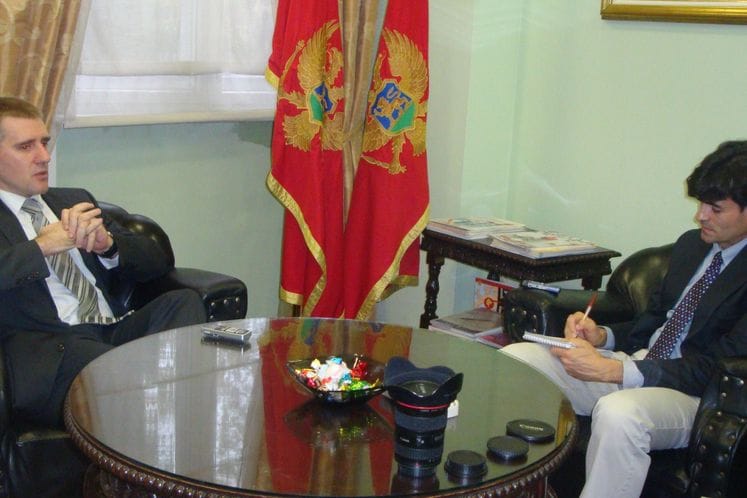- Government of Montenegro
Ministry of Finance Interview of the Deputy Prime Minister and Ministe...
Interview of the Deputy Prime Minister and Minister of Finance, Igor Luksic, for Reuters

PODGORICA, Dec 3 (Reuters) - Montenegro does not have immediate plans to return to the eurobond market as earlier eurobond money and an anticipated World Bank loan should cover 2011 budget needs, the finance minister said on Friday.
In an interview, Igor Luksic, who is also deputy prime minister, said the European Union applicant country is also preparing a new decree to help banks reclaim more easily assets behind bad debts.
"Currently there are no exact new plans," Luksic told Reuters about a new eurobond. "We had one very successful eurobond issue we did in September. We have also created some fiscal reserves for the next year."
"So for the time being we are okay with the financing needs," he said. "If everything goes well, we will combine eurobond fiscal reserves with that (World Bank) budget support and we'll be okay for the next year."
The former Yugoslav republic sees the deficit at 4 percent of GDP in 2010, but aims to reduce it to 2.6 percent next year.
With the region's smallest population at about 670,000, Montenegro enjoyed economic growth of 8.7 percent on average between 2006-08, but was then hit hard by the world crisis.
It now suffers from a payment crisis in which many firms are unable to pay their debts. The mostly Western-owned banks suffer from some of Europe's highest bad loans ratios and foreign investment has halved this year.
But in September it successfully completed its maiden eurobond, worth 200 million euros. The country also hopes to receive EU candidate status later this month, a move officials hope will lure more foreign investment.
Luksic's role may increase in the months ahead. Prime Minister Milo Djukanovic, who has dominated local political life for two decades, has said he will step down before the end of his current mandate.
Many local observers expect the transition to occur as early as later this month, with 34-year old Luksic, who has a PhD in economics, a Western style and excellent command of English, seen as the most likely successor.
WORLD BANK LOAN
Luksic said Montenegro had worked hard to gain an $85 million World Bank loan for budget support, which the bank says is likely to be decided on in the coming months.
"Now we are waiting for the Central bank to finish on-site controls, on-site examinations, of several banks including major ones: CKB, Hypo, Prva Banka," the minister said. "After that we'll see if they impose additional capital requirements on those banks."
"Hopefully later this month we can talk to a World Bank staff mission who are supposed to come here."
OTP <OTPB.BU>'s local CKB bank is the largest local lender, with about a quarter of the market. Nationalised Austrian bank Hypo Group Alpe Adria and Prva Banka, in which the prime minister's family are the main shareholders, have all suffered from the high numbers of bad loans.
Montenegro will still keep its eye on the eurobond market. "For the time being, given the trouble that other countries have, it seems that it is not a particularly good time for going out again," Luksic said.
The country would also keep open the possibility of a future IMF precautionary loan, a stance it has held for some time.
The small country, which lures tourists with its scenic Adriatic coastline, is also considering a local bond issue denominated in the euro currency it has unilaterally adopted.
"What we are thinking of is the possibility of issuing some local bonds, which might be attractive to the local banks," Luksic said. "But we are very careful not to create crowd-out effects to the markets."
By Adam Tanner and Petar Komnenic
